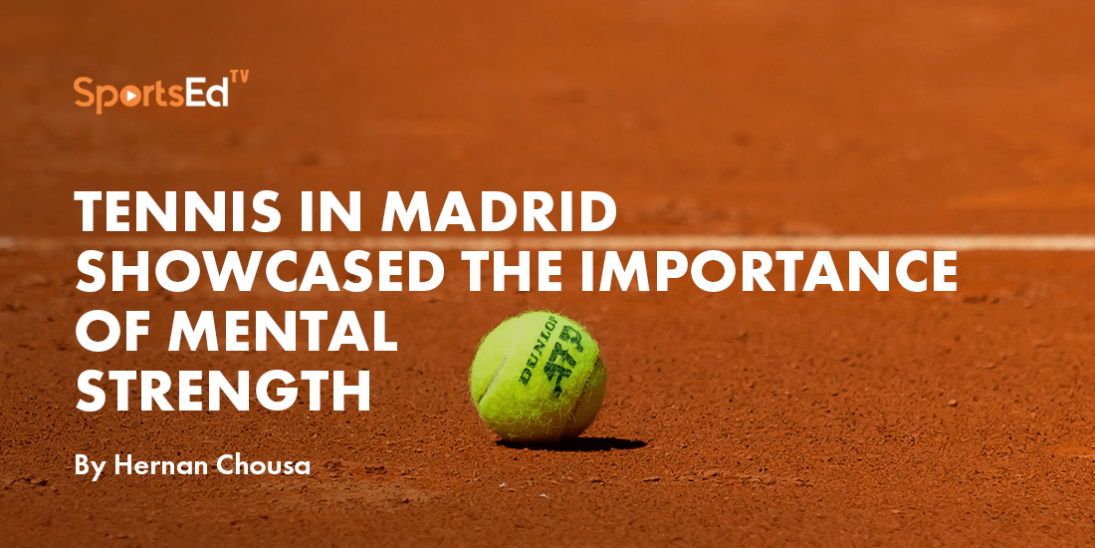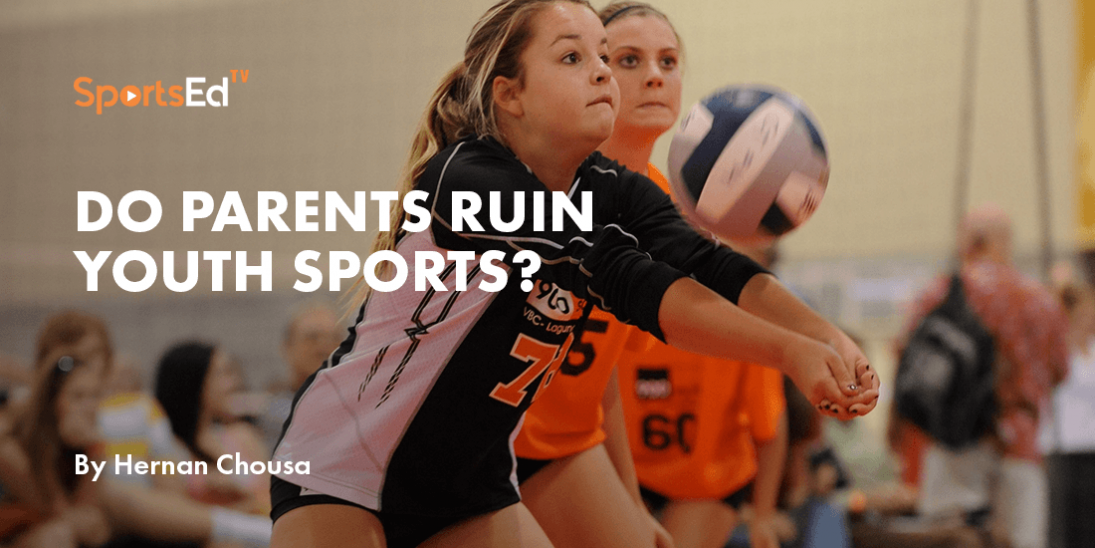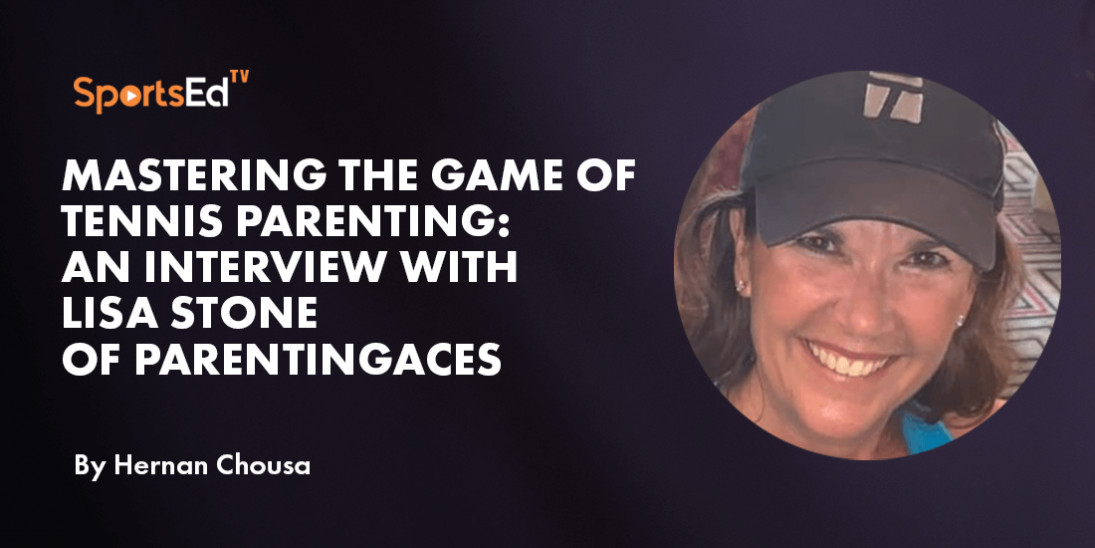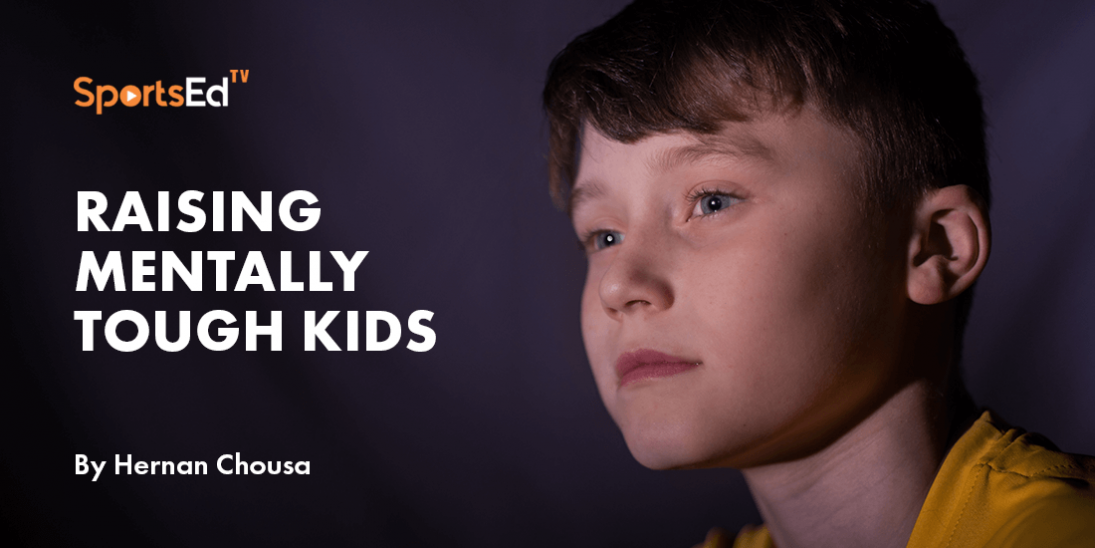Basketball, Soccer, Tennis, Volleyball
Welcome and thanks for visiting...

Sports Parenting: Unplug From Your Child’s Sport.
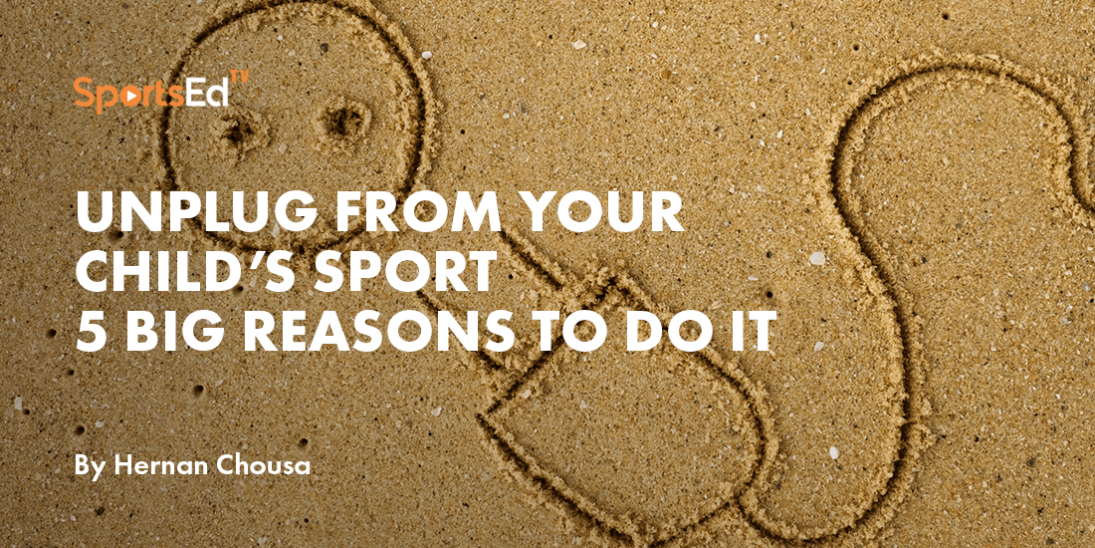
We started distilling parenting skills in the latest post, and timing was the first option. Even though I've written more than a couple of books, SportsEdTV named them a trilogy. It seems they are more involved in marketing than me. Anyway, I wanted to be original and come up with something new or express it differently than I used to. Getting outside of the box isn't an easy task; I was in my office—I ran a family business about anti-corrosion systems—and in front of my desk, I have a bookshelf with things that remind me of my successes and role models. Feng shui workout—highly recommended. So, I glance daily at Winston Churchill's and Steve Jobs’ biographies, images with my spouse, old pictures playing tennis while young, and a few books I've written: My Son the Tennis Player and a Spanish novel Unplugged, a Rock Story. I stared at the latter's cover for a while, nodding. My younger son, Sebastian, was holding a Gibson and had an urban background. I have to be honest; that novel was a way to compensate for how plugged in I was with my elder son's tennis.
Unplugged is today's post skill, and below are 5 reasons to do it:
#1 It's the healthy thing to do
Living vicariously on your kid's achievements is terrible and sends the wrong message to other family members. If you have one kid playing sports, maybe you have another who isn't involved, or if that's the case, maybe it isn't as good as the first one. I used to call it the Forgotten Son syndrome and gave you a clue about it when mentioning the reason for writing the novel. I have two kids who play tennis. They were good players, but Julian had better results than the younger one, and for some strange reason, it became a magnet for me, unbalancing the time I invested between my kids. As he was getting more involved in tennis, the situation got worse. Even though I knew I wasn't fair to all deep inside, I couldn't change course, so the word Unplug is a fantastic reminder about how to behave. Sometimes, it's impossible to share the same amount of time with our kids, so we must be aware of delivering quality time. Being in the moment without constantly checking our phones because children are diligent in taking mental notes about their actions and keeping a record of everything; sooner or later, all hidden emotions will emerge. Also, you don't have to attend every tournament for the "gifted one." We will talk about it in reason #2.

#2 It puts too much pressure on your child
I have a three-year-old older sister, and we started playing tennis together and taking some classes. I loved the sport initially, and she lacked the desire for it. What happened? Conversations were about me and my tennis, and she almost couldn't relate to any dinner chat. Later, she started riding horses and became pretty good at it. Even though she was performing better at her sport than me, imagine where all the pressure ended. Yes, you are right about me. It wasn't healthy being audited by my parents all the time, talking accurately, my father. Digging deep into the story, he was very concerned about my practice performance. Back then, I trained at a club where tennis academies didn't exist yet, and sometimes, we practiced sets and matches. The pressure was such that I had to "decorate" my results at home because I didn't want any punishment. Yes, things could go hard at that moment. Everything went nice and easy until my father approached the coach one day and asked me to upgrade to the upper group.
If you want healthy communication with your son or daughter, Unplug.
#3 Leave sport outside the door if you want a healthy dynamic in your family
Richard Williams shared a nice story in his book, Black & White, The way I see It, which I highly recommend reading. The family had a rule: all the tennis conversations were held inside the court, with no talks outside. Once after practice, the ladies were young and trained in a public park with Richard, who had never played tennis. Watching a tennis tournament, he figured out that the winner earned 50k prize money in just one week and had an epiphany about two girls on tour. They were on their way home, and Venus started talking about her game, some stroke or tactic, I am trying to remember what it was about, but it was around tennis. Ten minutes later, Richard listened to her and stepped into a gas station, giving Venus money to buy a soda for him. As soon as she entered the place, Richard started the car and returned home. That was the last time she talked about tennis outside the court. Why such a piece of advice? Because sports are like a disease, it's challenging to get rid of it once you have it, contaminating all the rest. It's healthy to have some other conversation topics at the dinner table. Otherwise, you will always talk about your son or daughter's sport. Remember, there is a life to live and things to enjoy, so limit the time and exposure to sports: Unplug.
#4 You need your personal goals and outlets
The first question in personal development any coach would ask is: What do you want? Knowing what you want makes it easier to start motivated to pursue your goals every day. They are about yourself; it isn't your partner or your kids. They are yours, and I talk about in earlier posts that we are the first reference our kids have, and they copy our behaviors. What better example than a mother or father with a clear vision about what they want and putting the daily grind into pursuing it? Your son or daughter will get your model. Refrain from explaining; lead by example. People think they have to know precisely how to reach their goals. Once you set them, you will figure it out. This is a great practice I experienced myself, and the moment I started setting them, everything changed. Take it easy with your kids; they will adapt what they see to their pace and thinking. The more you have personal interests and things to achieve, the easier it will be to unplug from their sport. Remember, it is their sport, not ours. Unplug
#5 Your role is to be a stable force in your kid's life with your unconditional support
They need to understand that you are emotionally balanced enough to cheer them up in tough times while making them accountable for their actions. Unconditional support has a main ingredient: Patience when the results aren't what we want. Patience when things don't flow as expected. Patience is one of the primary leadership skills; remember, you are their leader.
Let me share another exciting story about practicing patience with Richard Williams and Venus. As is well known, she didn't play the juniors, and the elder one was gifted with a wild card in the Oakland Bank of the West Classic at age 14 against Shaun Stafford. She was with her dad in the hotel room the day of the match, excited about her first time in the big scene.
'Do you have everything for the match?' Richard said.
'Yes, Dad. I am fully prepared.'
'Are you sure you have everything?' Richard asked, gazing at the beautiful pink dress covering the TV.
'Yes, Dad. I have everything I need,' replied Venus.
'Ok, if you are all set, let's go!'
The warm-up time came, and after twenty minutes, Venus took her head with both hands and shared with her dad that she had forgotten her match dress at the hotel, asking if he could do something about it.
'Your stuff is your responsibility, Venus. You have to fix it yourself,' was his answer.
Wow, what a lesson Venus will never forget. What a lesson for us parents. I am guilty of arranging things for my kids with lower stakes than the Williams, and many of my readers can relate to that.
To build patience, you have to control your emotions, and meditating is a great practice to start such a journey. Choose the one you want; YouTube has plenty of free options. Sit down for fifteen minutes every day with a pair of headphones and calm your mind. Unplug yourself from the external reality and start training your patience. Pro tip: use the word Unplug as a mantra.

Finally, if you still need to buy the unplug idea, I am coming up with a bonus. If you read my latest posts and are reading this, you will realize I love music. I enjoy attending concerts and am a big fan of rock bands that deliver noisy shows for hours loaded with people. The stage in such an environment sometimes drives musicians to do weird and irrational things.
The unplugged versions came up when Jules Shear, MTV co-creator, watched the song Wanted Dead or Alive performed by Jon Bon Jovi with outstanding acoustic guitar by Richie Sambora in the 1989 MTV Video Music Awards. Since then, almost every band also has unplugged versions. A different way to deliver a message without electric instruments: Looking chic, attractive, stylish, and professional. They performed their craft far from the crowd's emotions consciously and diligently. They were unplugged.
Give it a chance: Unplug.
Unplug yourself from the sports clatter and show up like a Pro. Your son or daughter will highly appreciate it!





